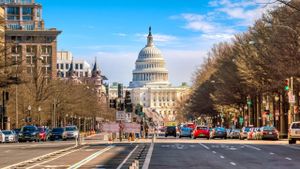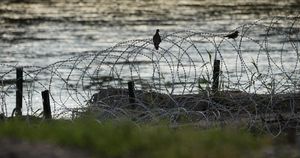Delegates from nearly 200 nations converged for COP29, the latest United Nations climate conference held this year in Baku, Azerbaijan, to address the pressing issue of climate change adaptation. At the heart of COP29 was the challenge of defining effective adaptation measures to cope with climate impacts already being felt across the globe.
The essence of the Paris Agreement, which aims to limit global warming to 1.5 degrees Celsius above pre-industrial levels, was spotlighted at COP29, along with the need for countries to bolster their efforts to adapt to inevitable climate effects. According to the International Institute for Sustainable Development's Emilie Beauchamp, the variety of circumstances faced by different nations means there is no universal metric for adaptation. "It’s not like when we say, ‘We reduce our emissions.' You can say we need to reduce vulnerability, but that's going to change according to whose vulnerability you're talking about," she explained.
Despite the urgency underscored by increasing climate disasters, adaptation funding discussions fell short of targets. This year, only $60 million was pledged to the world's largest adaptation fund, far below the initial goal of $300 million. Developing nations, yearning for billions to tackle adaptation challenges, expressed frustration as the focus remained skewed toward mitigation efforts, which attract more private investment compared to adaptation strategies.
Emphasizing the obstacles facing adaptation discussions, delegates encountered delays and critique surrounding the establishment of widely applicable adaptation indicators. With more frequent extreme weather events, from flooding and droughts to hurricanes, the need for tangible progress on adaptation has become all the more evident. Advocates suggested creating defined benchmarks would empower nations—especially vulnerable ones—to quantify their climate resilience.
Through the Baku Adaptation Road Map initiative, negotiators laid out proposed steps for fostering adaptation but left many unresolved issues as many were unsure how these would translate to actionable policies. The inaugural high-level dialogue on adaptation, to convene annually alongside future COP sessions, raised hopes for enhanced collaboration and ambitious action against climate impacts. Yet critics cautioned whether mere dialogue could yield substantive results, particularly when past negotiations had produced little momentum.
While the Baku roadmap was unveiled, its actual significance remains undetermined. Indications suggest it could guide future adaptation implementations, but key modalities are still unfinalized. Hawwa Nabaaha Nashid from the Maldives voiced optimism about defining meaningful adaptation success: "If there’s a high-quality [outcome], we can answer the question—how well are we adapting and what needs to be done differently?"
But not all developments at COP29 were encouraging. Discussions often devolved over semantics, particularly around what constitutes ‘transformational adaptation.' Despite momentum building behind adapting to transboundary climate risks and enhancing the global adaptation goal, major obstacles persisted, with critics stating ambitions fell flat against the need for urgent, impactful change. The final negotiations reflected this struggle, with many appealing for creativity and courage to truly advance adaptation initiatives.
Concerns linger over inadequate definitions of adaptation strategies and financing mechanisms—essential elements for ensuring nations can cope with climate-induced disruptions effectively. Without these fundamental advancements, experts warn the global adaptation goal could exist largely as rhetoric, disconnected from the lived reality of climate-affected populations.
Overall, COP29 illustrated the widening gulf between global agreements and the reality on the ground. With adaptation initiatives cluttered under various frameworks and institutional barriers limiting effective action, many remain skeptical of the progress and commitment needed to tackle the increasingly dire climate emergency.
Looking forward, stakeholders within the adaptation community recognize the need to seize the opportunities presented by COP29, ensuring it serves as a catalyst for bolstered commitments and the necessary measures to address adaptation with urgency and ambition.



